No one wants to get injured. No one wants a lawsuit. But when someone gets seriously injured through no fault of their own, they may think of making a claim for damages. A personal injury can impact your way of life and can lead to disability or lost income.
But before you get a lawyer or try to sue someone, here are some things you should know about how personal injury cases in Utah work.
Types of personal injury cases
In order to understand personal injury cases, you should understand that “personal injury” is a broad category. The most common personal injury cases are auto, truck and motorcycle wrecks. Others include pedestrian injuries, medical malpractice, slip and fall accidents, injuries caused by defective products, dog bites, falling objects, and workplace injuries. Almost anything can be classified as a “personal injury” if someone was hurt due to another person’s conduct or carelessness.
How do I know if I have a case?
Before you retain a lawyer for an injury case, you need to know if you have reason to sue. To know what you may have, you need to look at several factors:
- Whose fault was it? Analyze what happened. Identify all possible causes of your injury. Is there someone who was clearly at fault for the accident/injury?
- If more than one person is at fault, who do you think is more at fault? One test of fault is to ask yourself what the person could have done to avoid harming you.
- Was person’s conduct legally wrong? Car wrecks are a good example of looking at a person’s motives or behavior. Did someone break the rules of safe driving? Did someone fail to use reasonable care to avoid a collision? Not all wrecks are caused by faulty driving. If, for example, you ran over a nail or debris in the road you could not see or avoid and your tire blew out causing a wreck, you are not at fault. Utah law recognizes that some injuries are unavoidable.
- Is pursuing the case worthwhile? This is a question of proving fault and collecting enough money to justify the cost of a case. A case may not be worth pursuing if the person or company who hurt you doesn’t have insurance or money to pay damages. A case may not be worth pursuing even if the responsible party can pay, but the case is too expensive to pursue after payment of attorneys’ fees, expert costs, medial liens, and court costs. A good lawyer will be able to help you determine whether pursuing a case is worthwhile.
Basically, in order to know if you have a good case, you need to be able to know who caused the accident and why it occurred. The person or company who caused the injury should have the means to pay damages or the case isn’t worth pursuing unless you can get a judgment against them. Getting a judgment will essentially force the person or company to pay through wage garnishment.
What is the process for making a personal injury claim?
The process for an injury case begins with information gathering and ends with getting a settlement or going to trial. The result depends on whether the other party is willing to work with you and your lawyer and the severity of the injury or accident. A personal injury case can take anywhere from a few weeks to a few years to settle.
Information gathering
If you hire a lawyer, he or she will interview you to find out what happened. Your lawyer will also need to know who the witnesses were to the injury and to your medical problems. You will need to describe your injuries and tell your lawyer what problems you anticipate having.
Your lawyer will also gather information such as accident reports, information from law enforcement agencies, and medical records.
Your lawyer will likely want to talk to witnesses to determine who exactly was at fault. Our lawyers often hire scientific experts to reconstruct a collision or analyze the causes of another injury.
Evaluation of losses
Your lawyer will also evaluate your monetary losses. Under Utah law, an injured person who has a compensable claim may collect:
- Medical expenses: If your injury can be paid for under Utah law, your lawyer will look at your current medical expenses as well as any anticipated future medical expenses that may result from the injury. Estimating future medical expenses may require expert help.
- Lost income: If you miss work because of an injury or accident, your attorney can demand reimbursement of your lost income. This is determined by looking at pay stubs or paychecks as well as business income if you own a business. Your lawyer will look at how much work you’ve already missed as well as determine how much more you’ll end up missing as a result of the injury.
- Pain and suffering compensation: This is a little more difficult to determine. Pain and suffering damages are awarded based on pain, anguish, grief, disruption to daily life, disability, etc. An experienced lawyer should be able to make a good estimate of what these damages are worth based on prior court awards and settlements.
- Punitive damages: These damages aren’t part of every personal injury case. Punitive damages are only awarded if the person who hurt you intended harm or if their behavior was reckless. These awards are also called “exemplary damages.” Awards of punitive damages is rare in Utah injury cases.
Demanding a settlement
Once your lawyer has all the necessary information, the next step is to demand a settlement from the party who caused the injury. Your lawyer normally sends a letter to the other party’s insurance company or lawyers demanding payment of a sum of money.
Settlement before court action
Your lawyer negotiates with the other side for a fair settlement. Usually, lawyers work with insurance adjustors acting for the person who caused the injury. If the other side doesn’t want to settle for an acceptable payment, then you will need to agree to file a lawsuit.
Many cases do get settled out of court so filing a lawsuit only happens in extreme cases. Many car wrecks for example don’t ever go to trial but larger cases, like medical malpractice cases, are more likely to.
Court action
Once a case is filed in court, settlement discussions normally stop for several months while the opposing lawyers demand information, take testimony of witnesses, and ask the court to dismiss claims which lack proof.
Getting experts involved
In many personal injury cases, lawyers hire experts to analyze the events and determine fault. Other experts become witnesses on medical issues or help estimate the future loss of earnings if a person becomes disabled as a result of their injury. Qualified experts can be very expensive, so your lawyer should discuss the need for experts with you before you file a lawsuit.
Settlement during a lawsuit
Most injury cases filed in court are eventually settled. Utah judges will require the parties to hire a mediator (usually a lawyer or retired judge) who is trained to bring the parties to a settlement. Mediation is a time when experienced, smart lawyers can make a big difference in the amount of money paid out to the victim.
Trial
Injury cases that cannot be settled will need to be resolved in a trial, usually in front of a jury of eight people. Not many people like going to trial. However, you should choose your lawyer carefully because of the possibility of a trial. Many lawyers won’t go to trial so if you hire a personal injury lawyer, you might want to make sure they’ll go to trial for you if needed.
What happens to the case if the victim dies?
If the death is caused by injuries from the accident, the right to make a claim passes to the victim’s heirs, and the case becomes a wrongful death case.
If the victim passes away from natural causes that are not related to the injury, the family can pursue a claim, but the amount of money they can get from it is limited by law.
Personal injury cases in Utah follow special rules
Making claims for personal injury in Utah is more difficult than it is in many other states. In the past 30-40 years, Utah has passed “tort reform” laws. These laws are meant to prevent frivolous lawsuits by requiring some claims to be filed within a short time limit and by limiting the amount of money which can be claimed in some cases. These laws tend to protect medical practitioners and insurance companies more and can make it difficult for Utahns to get what’s due to them.
Getting a lawyer
In order to get the best settlement possible, you should contact an attorney as quickly as possible after suffering from a personal injury. If you have a personal injury case and are worried you can’t afford a lawyer, don’t worry. Most Utah injury lawyers don’t get paid for a personal injury case unless you settle or win, so you don’t need to pay fees up front. If you get paid, your personal injury lawyer will take a percentage of the settlement you receive.
A good choice
At Helgesen, Houtz & Jones, we have helped clients for 35 years win and settle all types of personal injury cases. We care about you and making a positive impact in a difficult situation. If you’re dealing with a personal injury because of an accident, call us today at 801-544-5306 for a free consultation to see how we can help you. We love to fight for deserving Utahns.


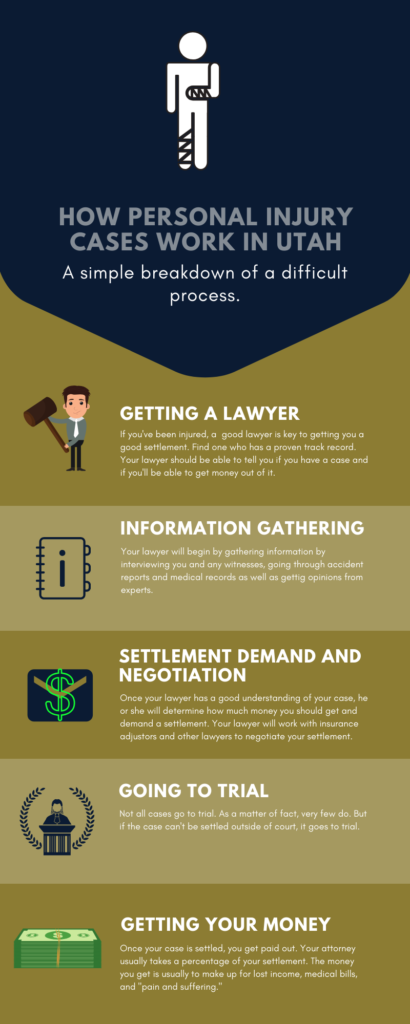

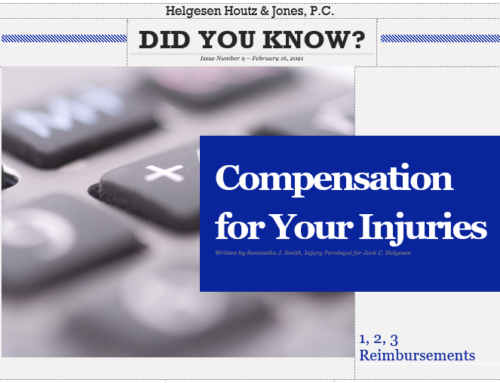
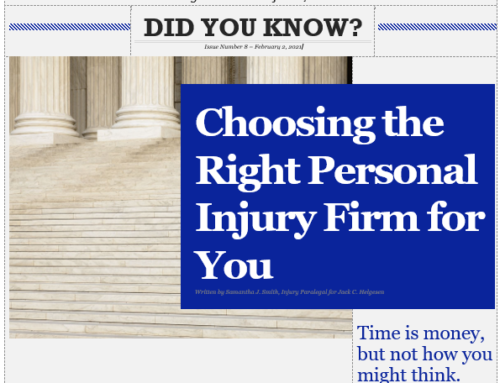
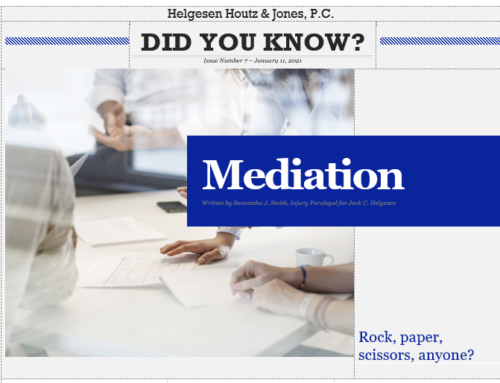
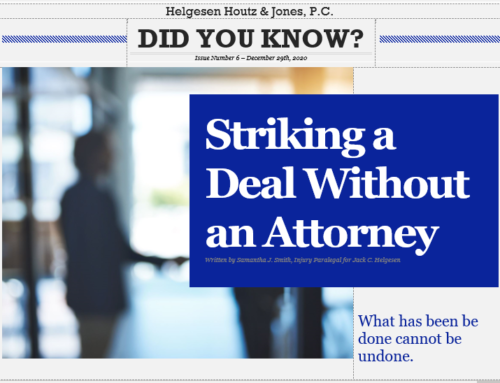
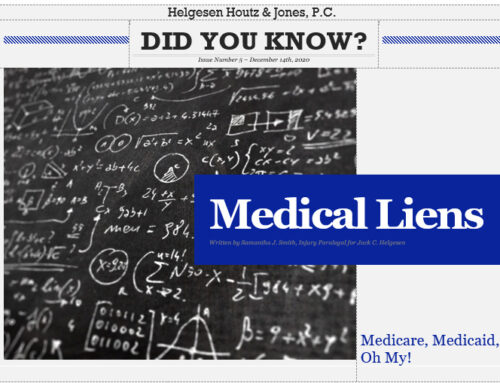
This is one of the best articles I have seen in a long time! Thank you for sharing~
Thanks for the feedback! We really appreciate it.